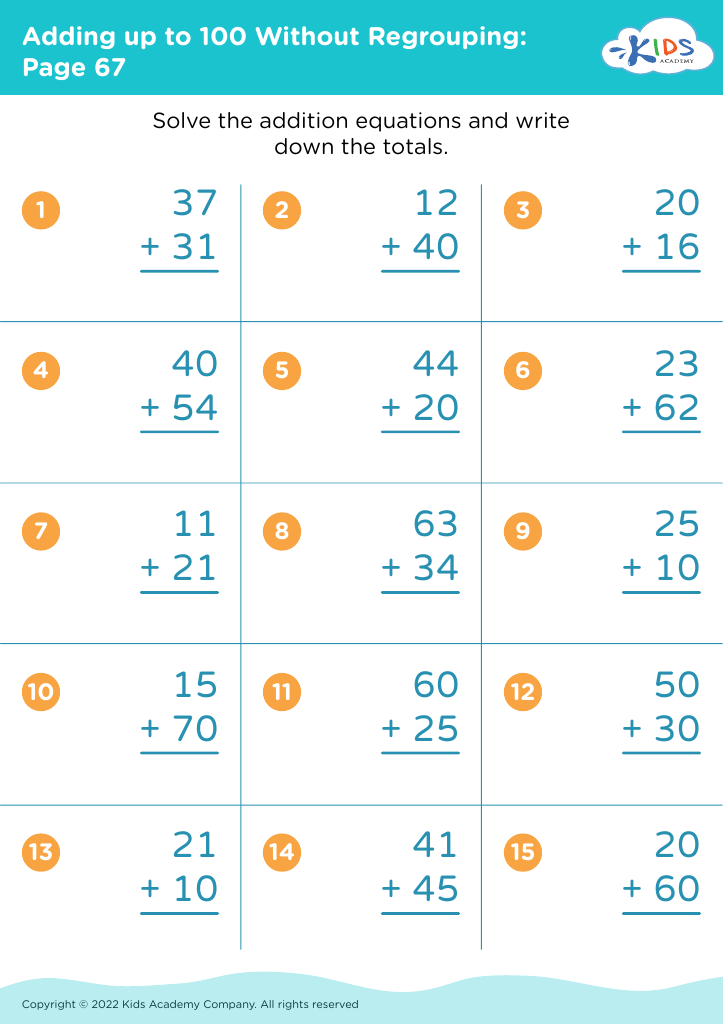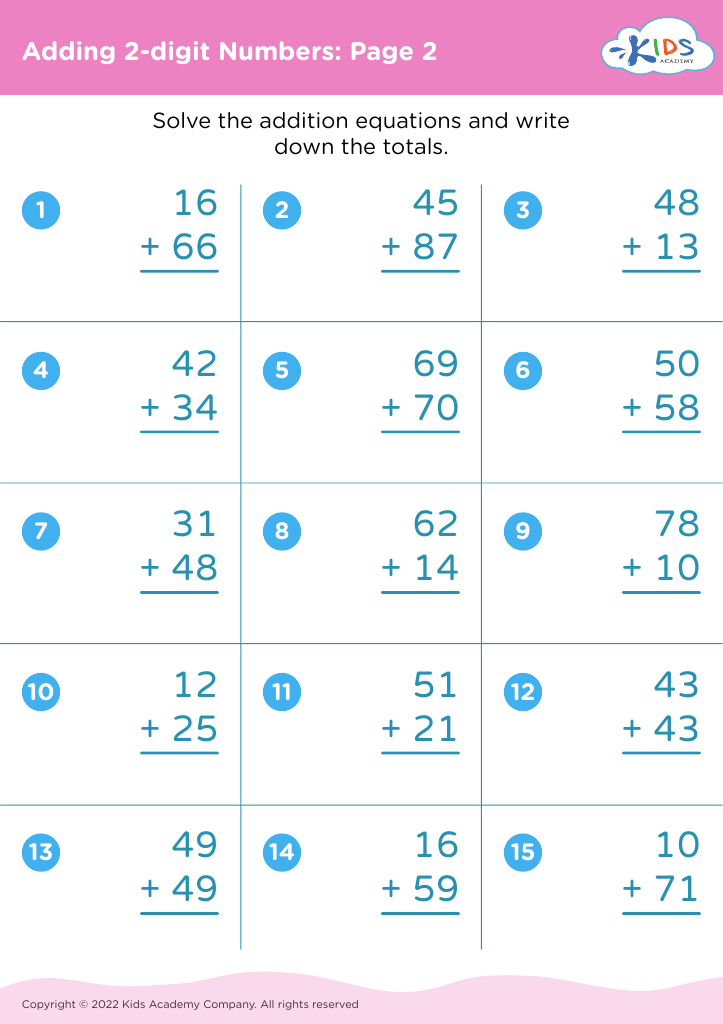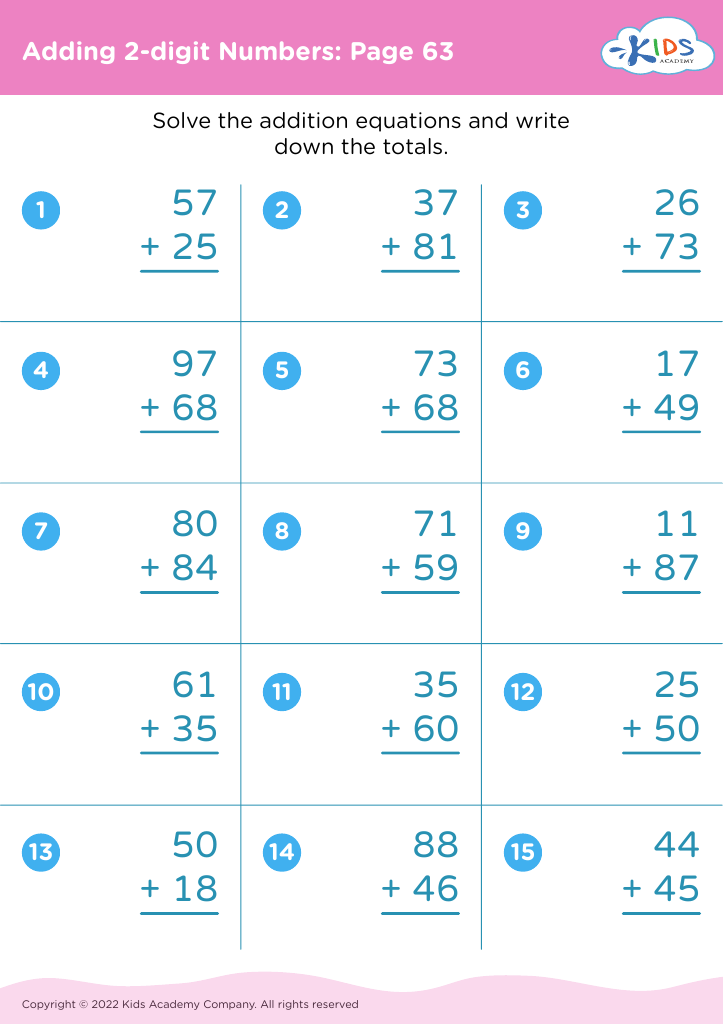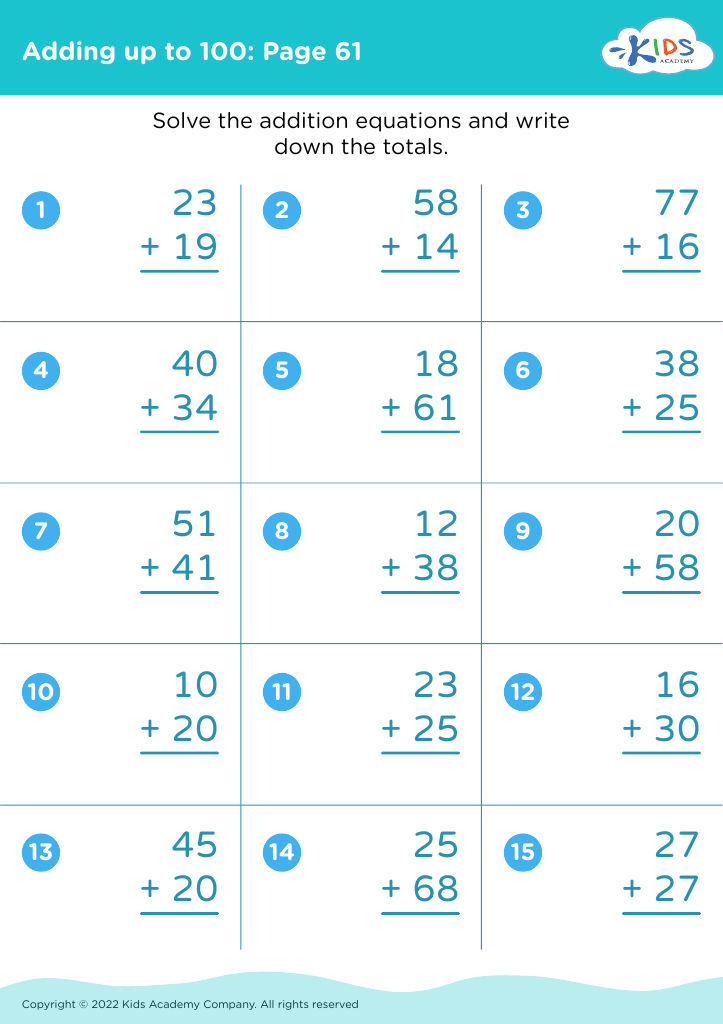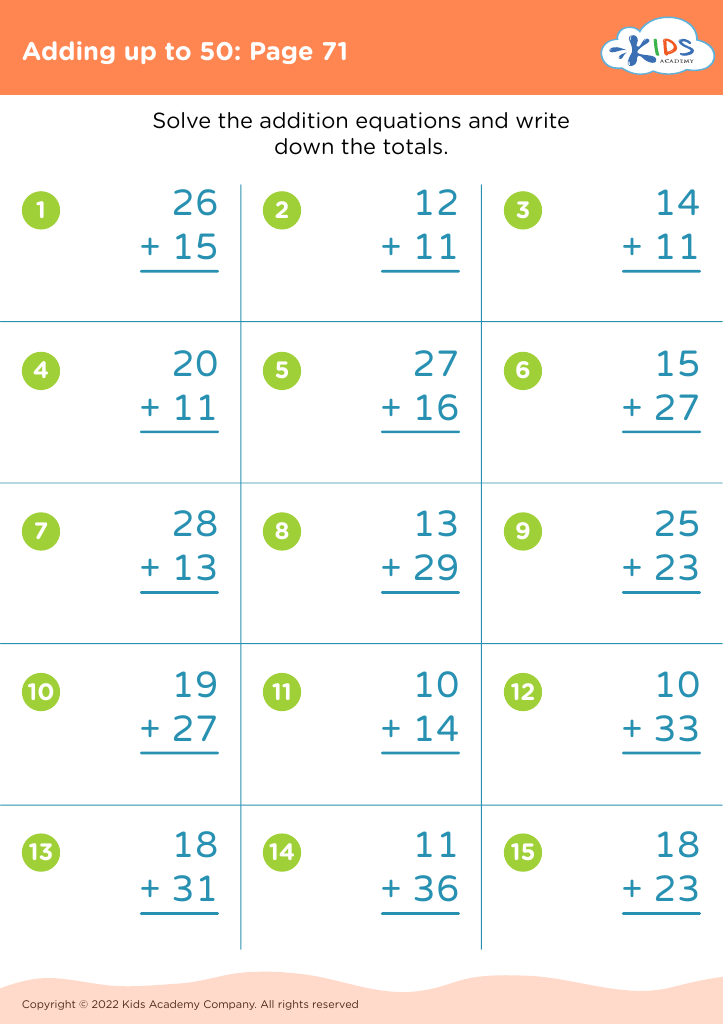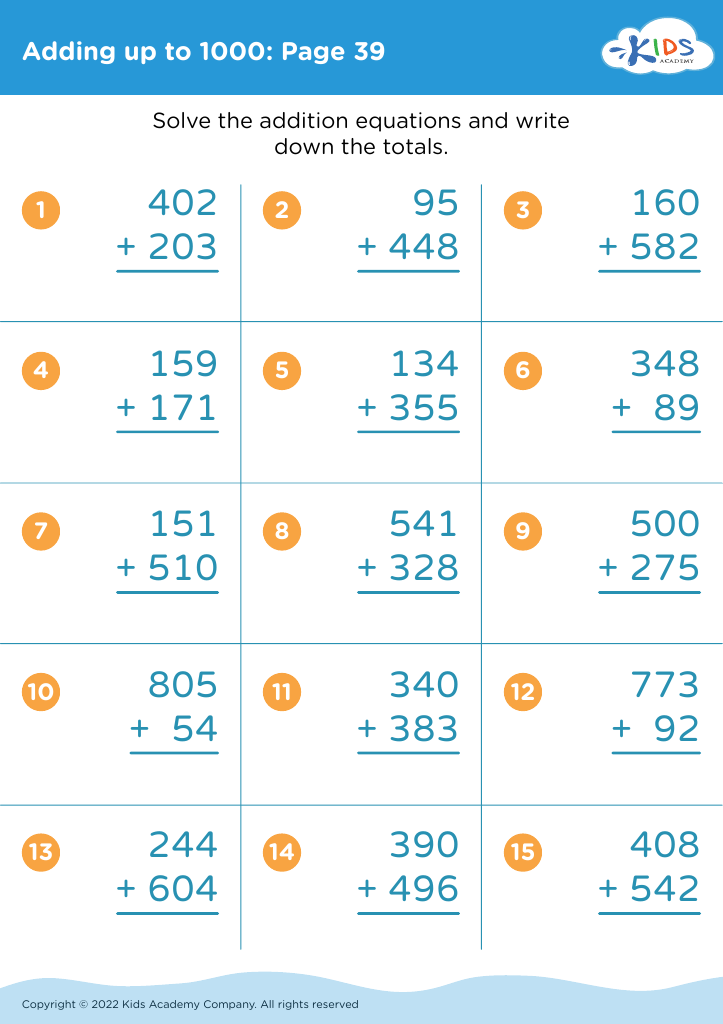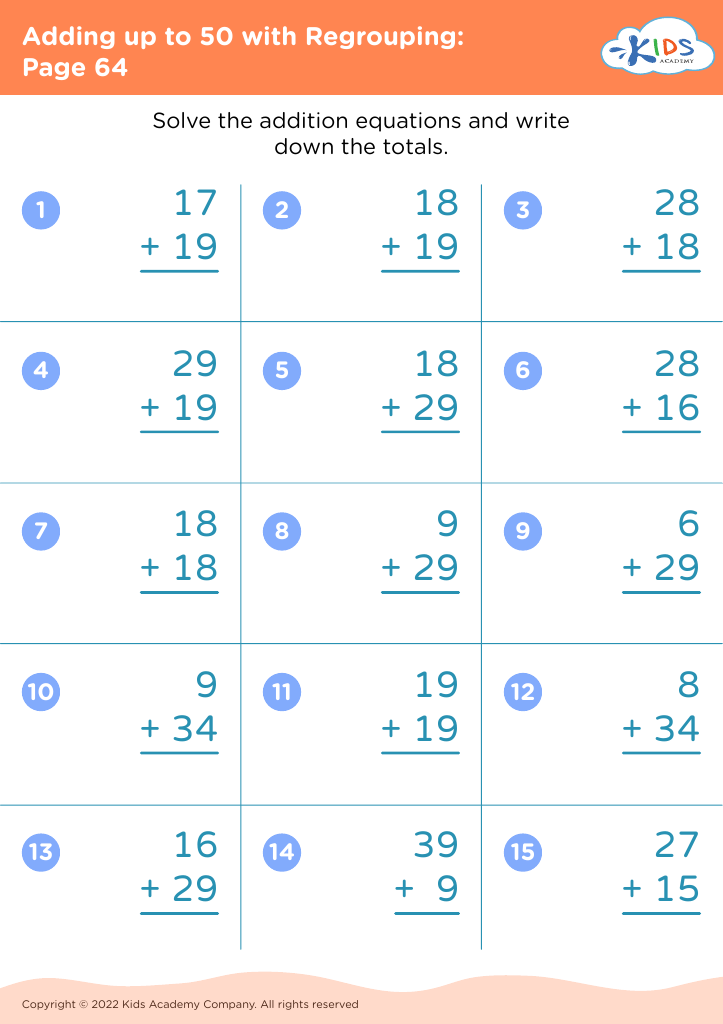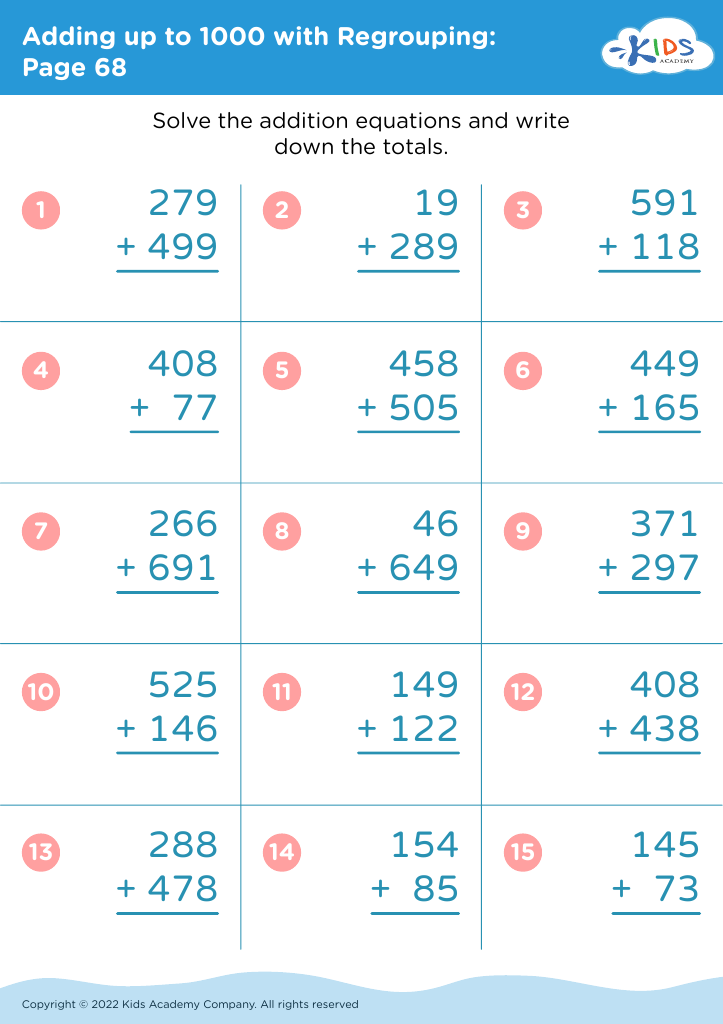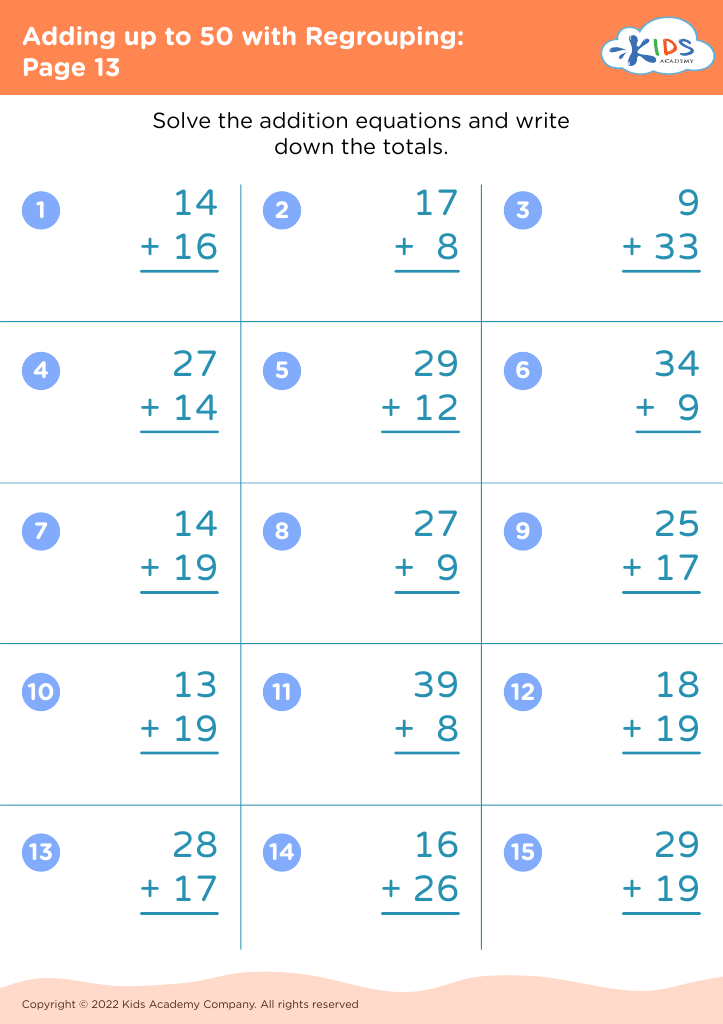Cognitive Development Addition Worksheets for Ages 6-9
18 filtered results
-
From - To
Unlock your child's potential with our engaging Cognitive Development Addition Worksheets tailored for ages 6-9. These expertly designed resources focus on enhancing cognitive skills through fun and interactive math challenges. By integrating addition exercises with cognitive development techniques, children will strengthen their problem-solving abilities, critical thinking, and number sense while enjoying their learning journey. Our worksheets promote independence and confidence in math, making it an ideal supplement for home or classroom use. Perfect for early grade teachers and parents alike, these worksheets help foster a strong foundational understanding of addition while supporting overall cognitive growth in young learners. Start your child's math adventure today!
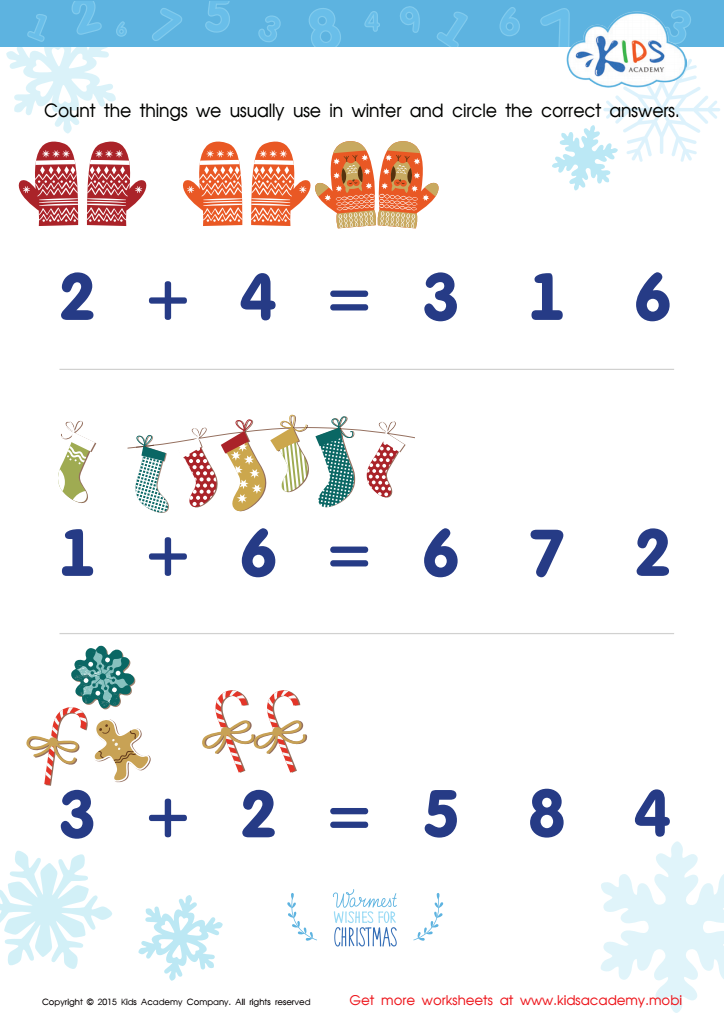

Count Winter Things Worksheet
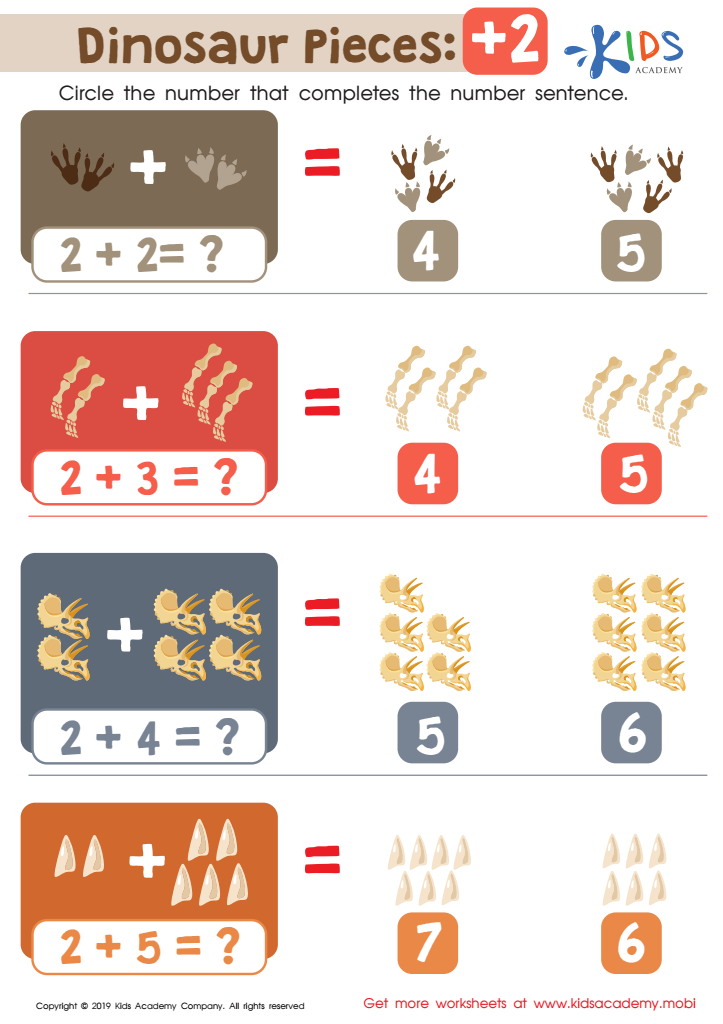

Dinosaur Pieces: +2 Worksheet
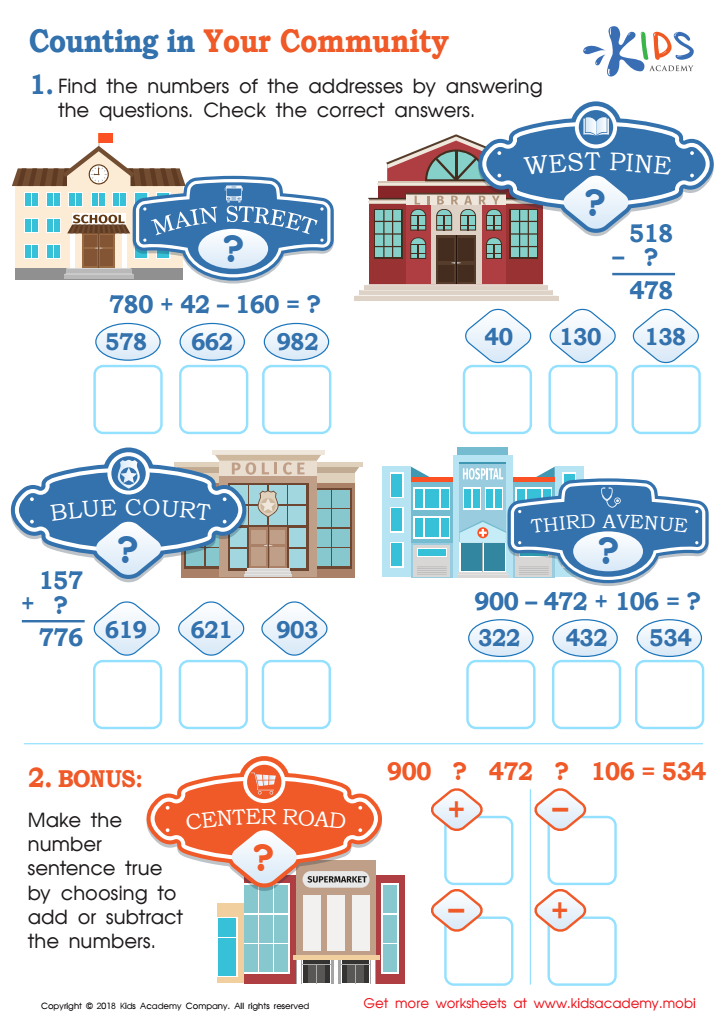

Counting in Your Community Worksheet
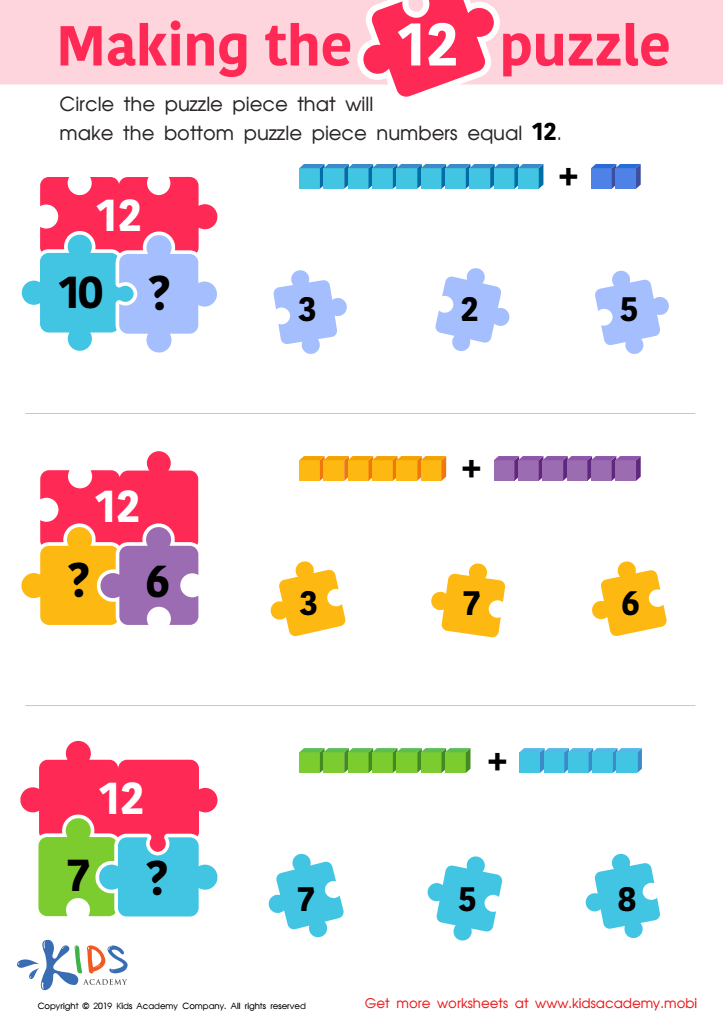

Making the 12 Puzzle Worksheet
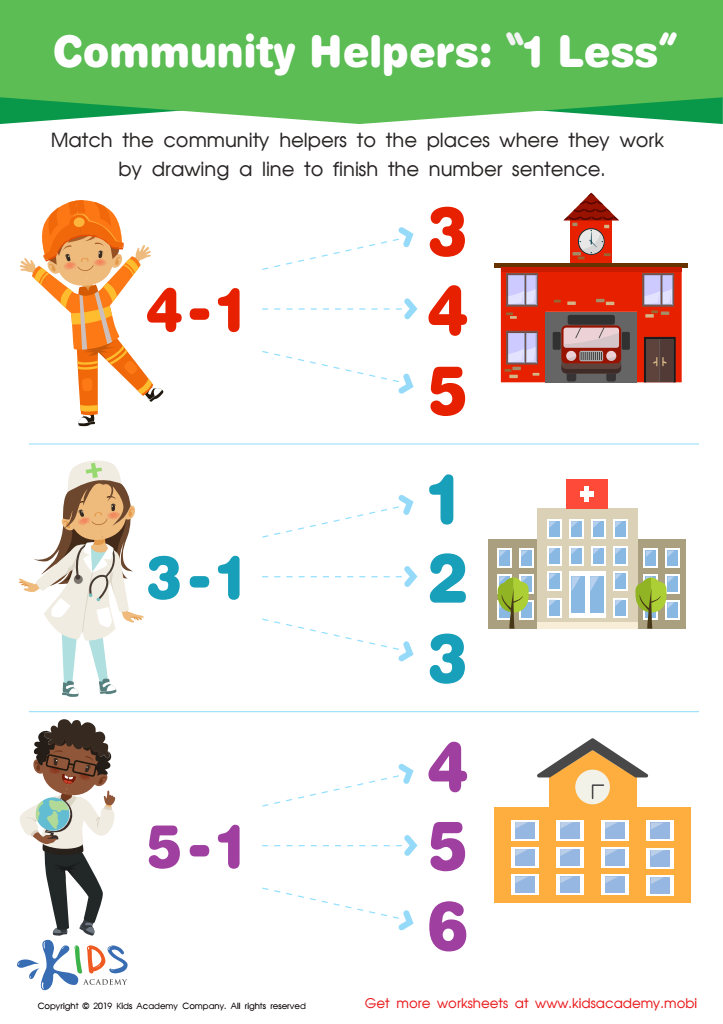

Community Helpers: 1 less Worksheet
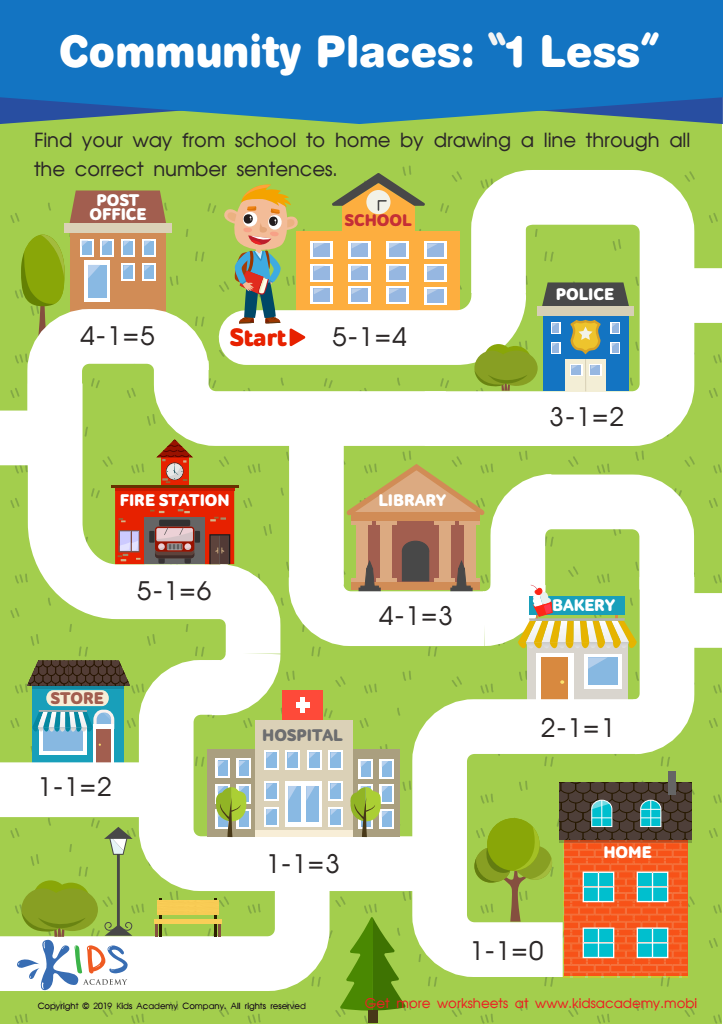

Community Places: 1 Less Worksheet
Cognitive development in children aged 6-9 is crucial for their overall growth and learning potential. During this stage, children become more adept at thinking logically, solving problems, and understanding complex concepts. Parents and teachers should care deeply about fostering cognitive development in this age group, especially when it comes to foundational skills like addition.
Addition serves as both a practical life skill and a stepping-stone for more advanced mathematics. Mastering addition enhances critical thinking and reasoning, empowering children to approach challenges methodically. Being proficient in addition also supports their self-confidence in handling math, reducing anxiety during assessments and contributing to a positive attitude toward learning.
Moreover, cognitive development in this important age range is highly influenced by interactive activities, discussions, and hands-on experiences. Engaging students in games and real-life scenarios not only makes learning enjoyable but also solidifies their understanding. Furthermore, recognizing the diverse learning paces and styles of children allows for tailored support, ensuring inclusivity and effectiveness in teaching.
Ultimately, investing in the cognitive development of addition lays the groundwork for lifelong learning and problem-solving skills, traits that are invaluable both academically and in everyday life.
 Assign to My Students
Assign to My Students
